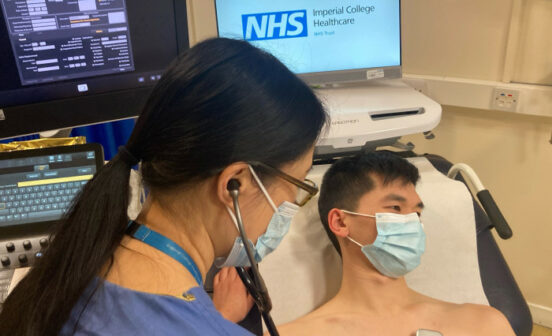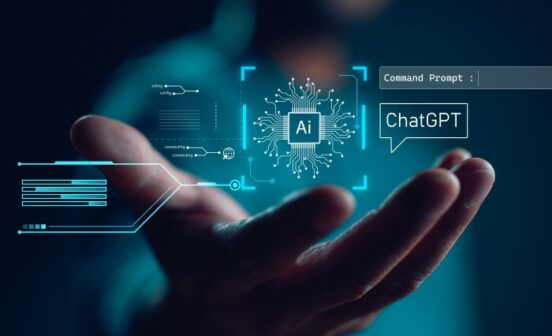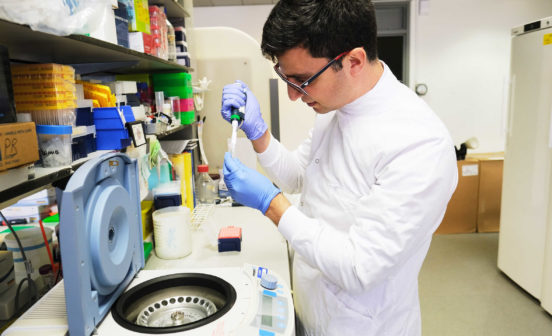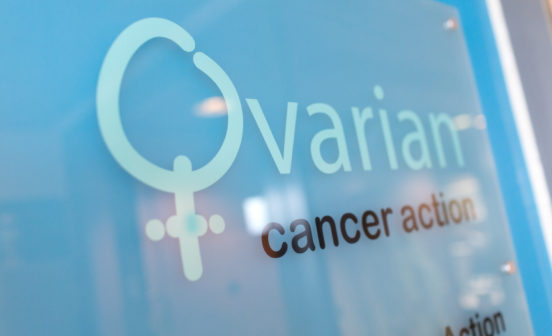PPIE Community Partners Take the Lead in Shaping PPIE in Cancer Research
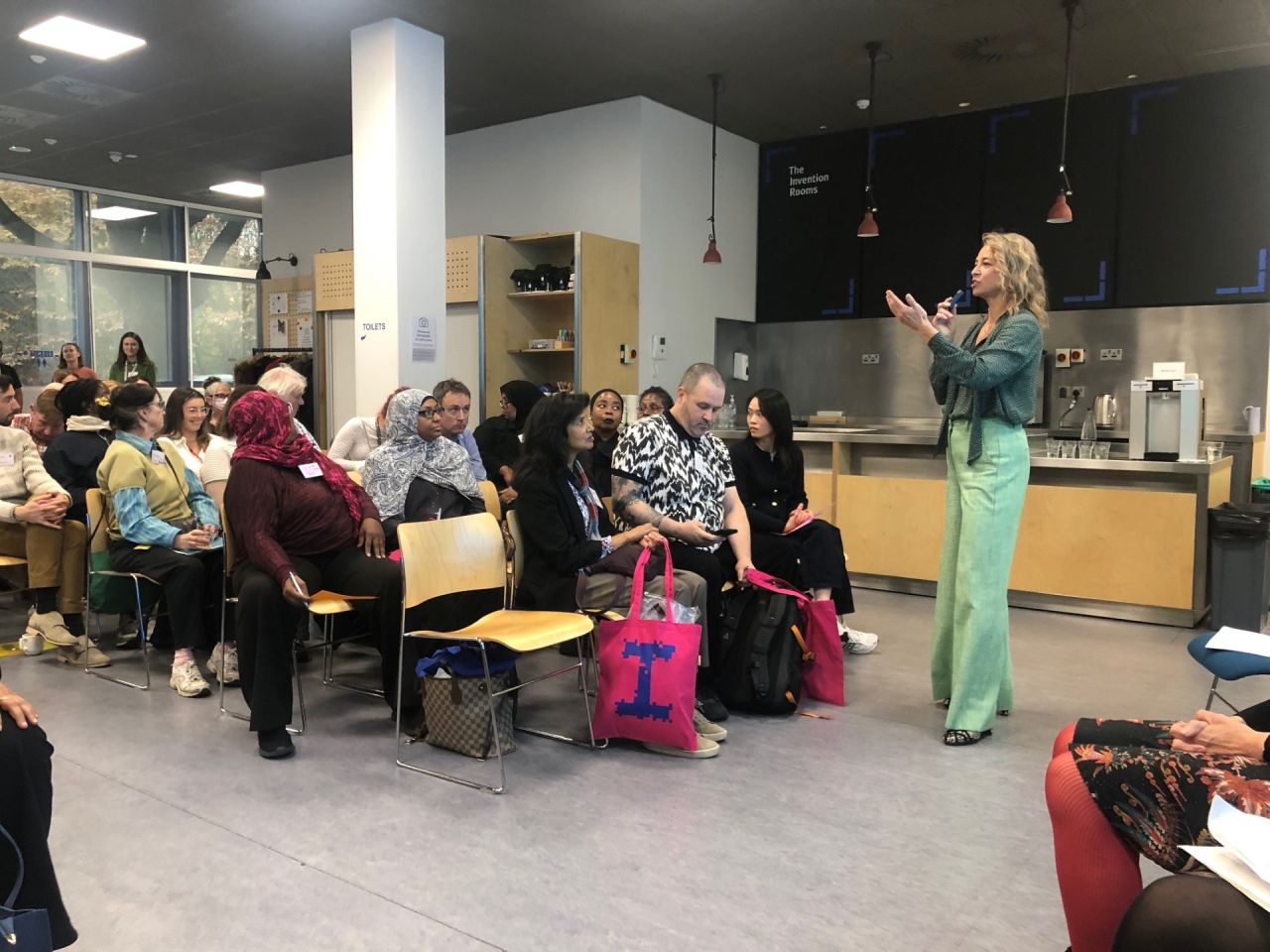
On Monday 13th October, Imperial researchers and community partners came together for an inspiring event exploring how to enhance patient and public involvement and engagement (PPIE) across all stages of cancer research.
The planning was led by the community partners from the NIHR Imperial BRC Surgery and Cancer Theme. Peter, Chris, Bhavini and Lili, who shaped the agenda, designed the format, and chaired the lively discussion, placing the voices of patients and the public at the centre.
Empowering Collaboration
Community partners hoped to use this event to “push our PPI from good to excellent” by identifying opportunities to strengthen involvement throughout the research cycle. By bringing researchers and community members together in open dialogue, the event aimed to surface shared challenges and co-create solutions that would help embed meaningful public involvement into Imperial’s cancer research culture.
The afternoon featured a panel discussion chaired by one of the community partner organisers, Peter, with researchers from across Imperial, individuals with a lived experience of cancer and external collaborators. There was also an open networking session where researchers, charity organisations and community groups hosted stands to connect and create ongoing partnerships.
A Shared Learning Experience
Panellists and attendees explored “dos and don’ts” for effective PPIE, shared examples of good practice and reflected on the cultural shifts needed to make PPIE a natural and integral part of research.
Peter, chair of the panel discussion, says: “As the session started, there was a real sense that we were here for each other. Not for a specific cancer or research project, but a togetherness; what could we do, could we make a difference, how can we make an improvement in public patient involvement that would provide better research outcomes that focused on real-life needs.
I saw everyone coming together, exploring each other’s views, concerns and problems. There was a connection, a true ‘involvement’, that meant we were sharing and helping each other.
The session was able to put the patient at the heart of research, but just as importantly, it also put the researchers into the heart of our community – so we were learning from each other, thinking of ways of how we could all work better together – that was the real impact of the day”.
Panellist member, Chris, with experience of being a patient voice in research studies with her own personal experience of cancer, said: “Being on the panel, I was feeling very nervous about how it would go, would our discussion engage the audience? My worries proved to be unfounded as I felt the discussion went really well and the audience was keen to participate, raise questions and contribute. So many people came up to me afterwards and said how they enjoyed it and, in particular, how some of the issues resonated with them.”
Broad Community Representation
There was a range of community and charity partners represented, including:
Abdul Majeed Education Trust, Action Against Heartburn, Black Women Rising, Brain Tumour Charity, EKTA, The Healing Church of God in Christ, The Men’s VMU, and the Imperial PPI Group.
During the open networking session, stands were hosted by Asian Women Cancer Group, Blood Cancer UK, Independent Cancer Patients Voice, Ovarian Cancer Action, and Reviving Links, alongside four research stands.
Researchers represented a wide spectrum of cancer research areas, such as imaging or the use of engineering in cancer research, and cancer types including oesophageal cancer research and exploratory research on the impact of dietary changes during cancer treatment.
Real-World Outcomes and Next Steps
The networking session sparked tangible collaborations and new relationships. Several researchers welcomed community partners to be involved in their research and offered invitations for lab tours in 2026.
Research teams shared that the event left them inspired, motivated and invigorated to keep pushing forward, having been reminded of the importance and the human impact behind their work.
Connections were also deepened between community groups and cancer charity groups, joining forces to involve more people in cancer research.
Peter: “I was very pleased with how busy the networking element was – so many people talking to the researchers and community groups at their stands and tables, keen to be involved or find out more. I think we have a good basis to build on continuing to improve PPIE within research, support researchers and improve outcomes for all.”
Building a Culture of Shared Purpose
This event has provided a blueprint for fostering new connections between researchers and communities and exemplifies how researchers and community partners can learn from each other to make cancer research more relevant, inclusive, and impactful.
Bhavini: “It was open, constructive, and inclusive of everyone — patients, public and researchers. The passion and balance in the room showed how much both groups benefit when a partnership is built from the very beginning.”
If you’re looking to be involved in research or trying to find community partners to involve in your research, please see here for more information or get in touch!

